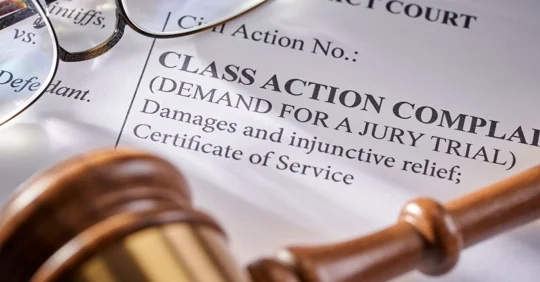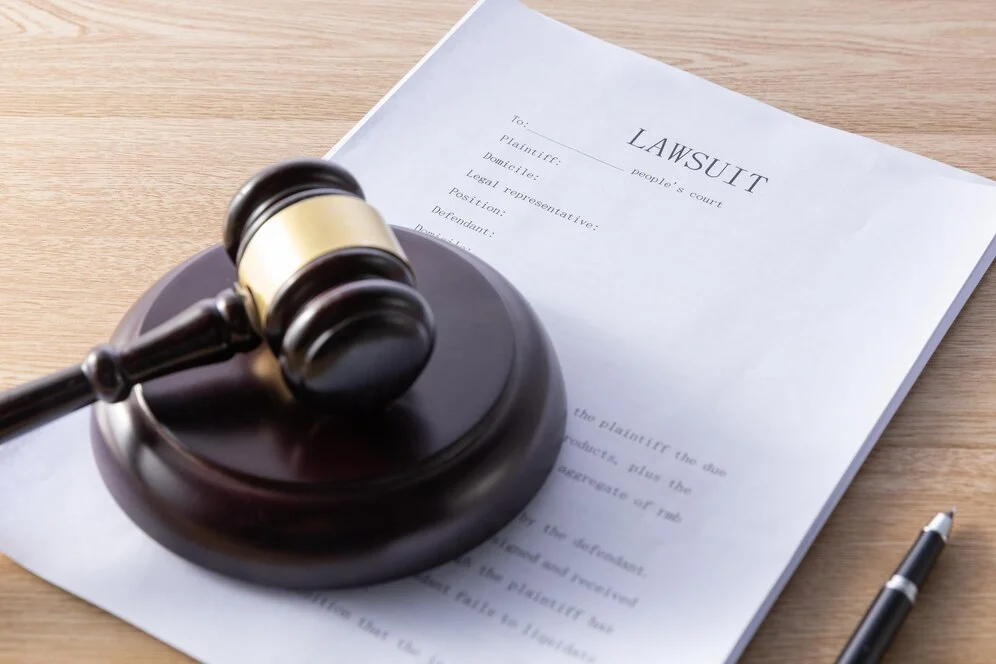
Class action lawsuits play a critical role in the justice system by allowing a group of people with similar grievances to collectively bring a claim against a defendant. These lawsuits can be about defective products, misleading business practices, employment discrimination, and more. If you're curious about how class action lawsuits work and why they matter, this guide will break down the essentials.
What Is a Class Action Lawsuit?A class action lawsuit is a legal action filed by one or more plaintiffs on behalf of a larger group who have suffered similar harm. Instead of everyone filing separate lawsuits, a class action consolidates all the claims into one legal proceeding. This streamlines the legal process and increases efficiency for both the courts and the claimants.
Class actions are especially common in cases involving consumer fraud, defective products, securities fraud, employment issues, and environmental disasters.
Who Can File a Class Action?Typically, a class action starts with one or more individuals known as lead plaintiffs or class representatives. These individuals must have claims similar to those of the people they seek to represent. The court must certify the lawsuit as a class action before it can proceed. Certification involves proving that the issues involved are common across the group and that a class action is the best method for resolving them.
Class actions offer several advantages to both plaintiffs and the justice system, including:
- Cost Efficiency: Legal costs are shared among the group, making it affordable to pursue justice. - Consistency: One court decision applies to everyone in the class, which avoids inconsistent rulings. - Strength in Numbers: A large group may have more legal leverage than an individual. - Public Awareness: These lawsuits often draw attention to systemic problems that might otherwise go unaddressed.
While beneficial, class actions also have downsides:
- Lower Individual Compensation: Payouts are usually distributed among many people, reducing the individual amount. - Loss of Individual Control: Plaintiffs have little control once the class is certified. - Complex and Lengthy Process: It can take years to resolve a class action lawsuit.
Types of Class Action LawsuitsSome of the most common types include:
- Consumer Class Actions: Often filed over false advertising, defective products, or poor services. - Employment Class Actions: Related to wage disputes, discrimination, or illegal employment practices. - Securities Class Actions: Shareholders bring these suits over corporate fraud or misleading financial statements. - Environmental Class Actions: Residents affected by pollution or hazardous waste might band together to sue a corporation.
The Process of a Class Action LawsuitThe class action process usually includes the following steps:
1. Filing the Lawsuit: Initiated by the lead plaintiff.
2. Class Certification: The court must approve the case to proceed as a class action.
3. Notification: Potential class members are notified and given the chance to opt-in or opt-out.
Notable Class Action LawsuitsOver the years, several major class action lawsuits have made headlines, including:
- Tobacco Litigation: Smokers sued tobacco companies for misleading health claims, resulting in multi-billion dollar settlements. - Volkswagen Emissions Scandal: Car owners were compensated after it was revealed that emissions data was falsified. - Equifax Data Breach: Millions were affected by a data leak, leading to a significant class action lawsuit and compensation fund.
 How to Join a Class Action
How to Join a Class ActionYou can join a class action if you receive a notice stating that you’re part of the affected group. If you believe you’ve been harmed but didn’t receive a notice, you can search for ongoing class actions online or consult a lawyer. Usually, you don’t need to actively participate unless you want to opt out or become a lead plaintiff.
When to Opt OutYou may want to opt out of a class action if you prefer to file an individual lawsuit. Reasons might include:
- Belief that you’ll receive more compensation independently. - Wanting more control over your legal case. - Having a unique claim that differs significantly from the rest of the class.
Legal Representation in Class ActionsClass actions are usually handled by law firms experienced in group litigation. These firms often work on a contingency fee basis, meaning they only get paid if the class wins or settles. The court must approve any settlement and attorney fees to ensure fairness.
Risks and ConsiderationsWhile class actions can be effective, consider these factors before joining:
- Evaluate whether your situation truly aligns with the class. - Understand that your involvement may be minimal but still binding. - Be aware that compensation can take a long time.
ConclusionClass action lawsuits offer a powerful way for individuals to unite against large organizations for shared grievances. They provide access to justice that might not otherwise be available and help hold powerful entities accountable. By understanding how class actions work, their benefits, and their limitations, you can make informed decisions if you're ever part of such a case.
Subscribe to our newsletter and never miss an update.
Get the latest posts delivered straight to your inbox.

Senior Contributor
Ravi Raj is passionate about impactful storytelling. With a unique voice and deep insights, they turn everyday stories into compelling reads that resonate and inform.
Read Full Bio
By Kusum Singh
23 Dec 2025

By Ravi Raj
31 Dec 2025

By Ravi Raj
22 Dec 2025

By Kusum Singh
02 Jan 2026

By Ravi Raj
30 Dec 2025

By Kusum Singh
21 Dec 2025

By Ravi Raj
02 Jan 2026

By Ravi Raj
02 Jan 2026

By Ravi Raj
20 Dec 2025

By Ravi Raj
31 Dec 2025

By Ravi Raj
01 Jan 2026

By Kusum Singh
19 Dec 2025